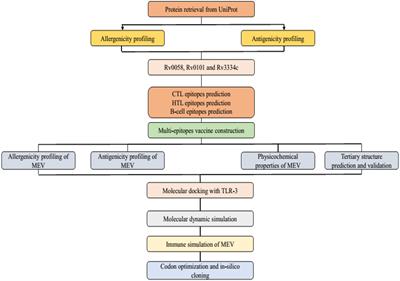EDITORIAL
Published on 23 Nov 2022
Editorial: Beyond Th1: Novel concepts in tuberculosis vaccine immunology
doi 10.3389/fimmu.2022.1059011
- 848 views
- 1 citation
16k
Total downloads
55k
Total views and downloads
EDITORIAL
Published on 23 Nov 2022
MINI REVIEW
Published on 24 Jun 2022

ORIGINAL RESEARCH
Published on 02 Jun 2022

REVIEW
Published on 12 Apr 2022
ORIGINAL RESEARCH
Published on 30 Mar 2022

REVIEW
Published on 10 Mar 2022

ORIGINAL RESEARCH
Published on 25 Feb 2022

ORIGINAL RESEARCH
Published on 05 Jan 2022

ORIGINAL RESEARCH
Published on 02 Dec 2021

